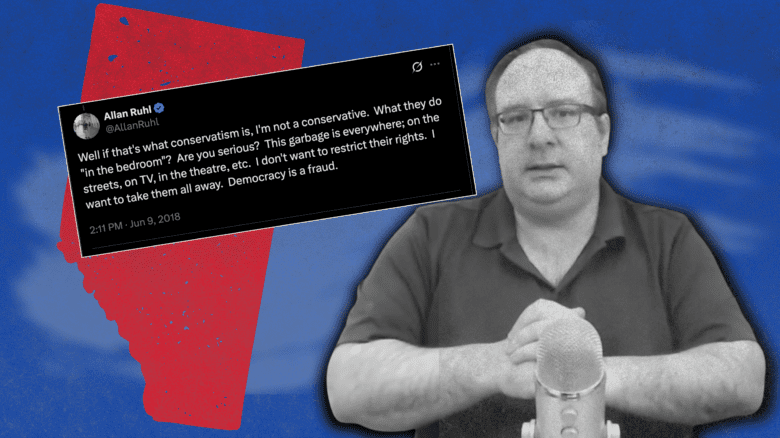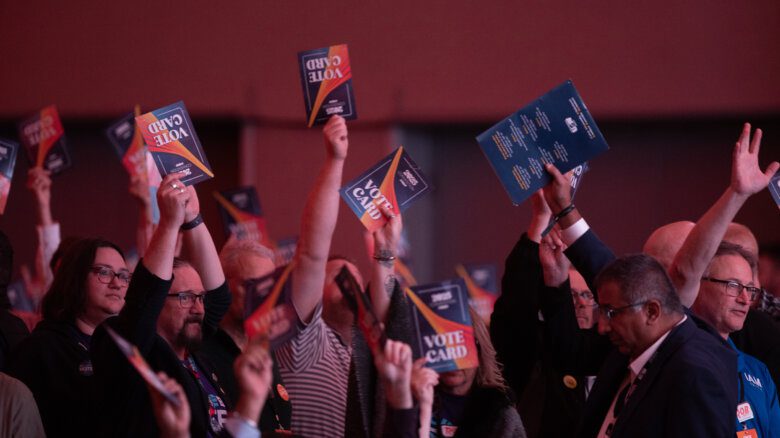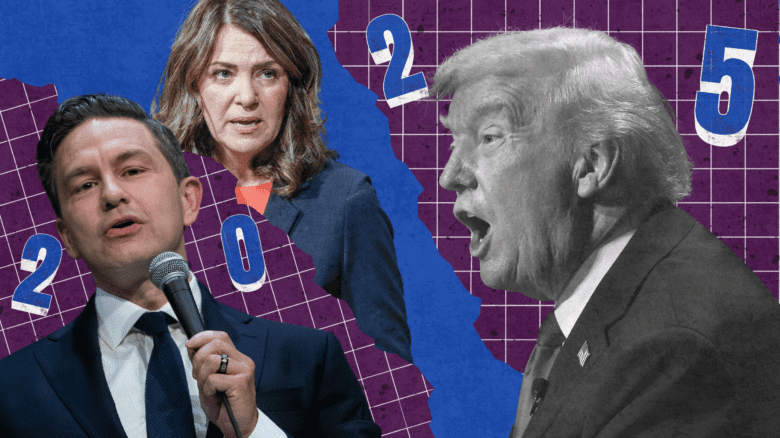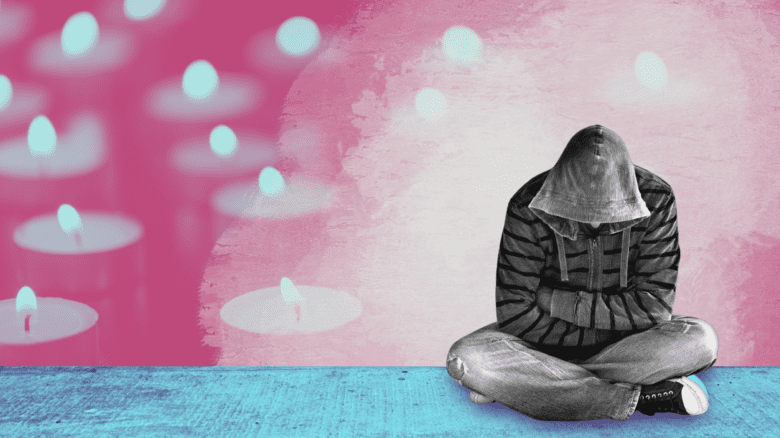New Brunswick premier Blaine Higgs recently announced a policy review of the province’s three-year-old Policy 713, which provides guidelines for maintaining the safety of LGBTQ2S+ students in the province’s public schools. Though he didn’t explicitly say as much, the premier seems to be taking in the moral panic around drag storytime and trans people existing that has bubbled up from the U.S., and this could be a sign of how pressure tactics used south of the border could manifest in Canada.
“Ask the leader of the opposition [New Brunswick Liberal Leader Susan Holt] if she’d like to answer the question, does she think there should be drag storytime for young kindergarten, Grade 1, Grade 2? Does she think that’s appropriate Mr. Speaker?” Higgs asked in Question Period on May 17 in response to an invitation to clarify his comments on Policy 713. “We’re dealing with young minds. We’re dealing with assets and factors of how do we let children grow and make decisions when they’re able to make decisions.”
The comments that Higgs was asked to clarify were a bit of a car crash if you watch the whole 18-minute scrum with reporters. In it, Higgs was particularly combative about students under 16 changing their first name and pronouns without informing their parents, saying parents should know what is happening with their children and schools should keep them informed—a red flag for most queer and trans people that there is no regard for the safety of those students. When reporters pressed him about children with homophobic or transphobic parents needing a safe space, Higgs kept repeating that parents are responsible for their children, and accused the reporters of not caring about parents.
He also raised concerns about trans women in sports, saying that cis women can’t compete with trans women on hockey teams. He said outright that he thought that children in kindergarten or elementary school shouldn’t be “exposed” to drag queens, and talked about their needing to “make a decision when they get older,” seeming to imply he thinks that being gay or trans is a choice, but he wouldn’t clarify what he meant. He also at one point asked, “Are we teaching tolerance and acceptance or teaching promotion?” then quickly backtracked on that. But he did say it out loud.
Not only did he bluntly state these Republican talking points, but Higgs seemed to justify the review of this policy by saying that his province has the highest per capita exodus from the public school system in the country, and claimed that the minister of education had received “hundreds of complaints,” even though reporters could only point to four, three of which appeared to be inauthentic. Further, Higgs openly wondered why the education department was “so quiet” when Policy 713 was put into place, insinuating sinister motives at play.
With this in mind, I reached out to Higgs’s opponent, Liberal leader Susan Holt, who has been trying to get answers as to why this moral panic has become a preoccupation for Higgs.
“It seems to us that this was something the premier requested because there isn’t really a clear or transparent reason for the review that’s been communicated,” Holt says. “It’s also possibly a confusion between what Policy 713 is and does, and where the sex-ed curriculum fits, because we understand the premier has concerns around the latter and maybe entered into a review of the former, hoping it would get him there, even though it doesn’t.”
Holt says that the debate is now playing out in a concerning way because Policy 713 came about after a decade of work by experts, teachers and parents across three different governments to get the policy developed and through the process to implementation. At the time, there was national praise for the policy on providing safe, inclusive and affirming spaces for students in all schools in the province.
“For it to go under review, barely two years into its implementation, at the same time as a group called Pride in Education was preparing some professional development sessions for teachers, and one of those sessions had protesters show up who were against gender identity and sexual orientation policies in the curriculum,” Holt says.
“The response from the public has been vocal, passionate and really seated in fear,” she says. “The policy was brought about to protect kids, and now that we’ve created space for a conversation that isn’t being led well by government and isn’t being informed with good factual information, it’s created a very polarized conversation in New Brunswick right now,”
To that end, she is trying to get answers as to what is the basis for the review, and what issues with the policy the premier hopes to address. The premier has been saying the review will happen very fast—over two weeks, with no hint that advocates or allies have been approached, leaving even more concerns as to the nature of the review. The province’s Child and Youth Advocate, Kelly Lamrock, has also called for the review to be suspended, citing the same concerns with the process.
“To boil it down, we have a real lack of leadership, and I would argue ignorance on the government’s part with the hornet’s nest they’ve kicked in callously opening up this policy review without a plan in place, and creating a lot of fear, anxiety and harm in the population here as they fumble around trying to figure out what to do now,” Holt says.
Holt says she worries that this kind of story could make the province look like something of a backwater, but my concern is that it’s not that the province is somehow behind others, but rather, that this is being used as something of a test case for the kinds of tactics being employed by far-right actors in the U.S., who found a vulnerable target in Higgs to act out the moral panic in Canada. We have to remember that the provinces are where a lot of these battles are going to play out in the months, and possibly years, ahead, because this is the level where education and healthcare are situated, and that’s where the attacks are being felt first.
If Higgs is successful in blunting policies aimed at protecting queer and trans youth under the overwrought concern for “parental rights,” it could very much give tacit permission to other provinces to take their own measures to curtail their own policies. We have a lot of conservative provincial governments who are also hearing these same culture-war drumbeats, and who may very well feel emboldened enough to give this vocal minority what they’re demanding.
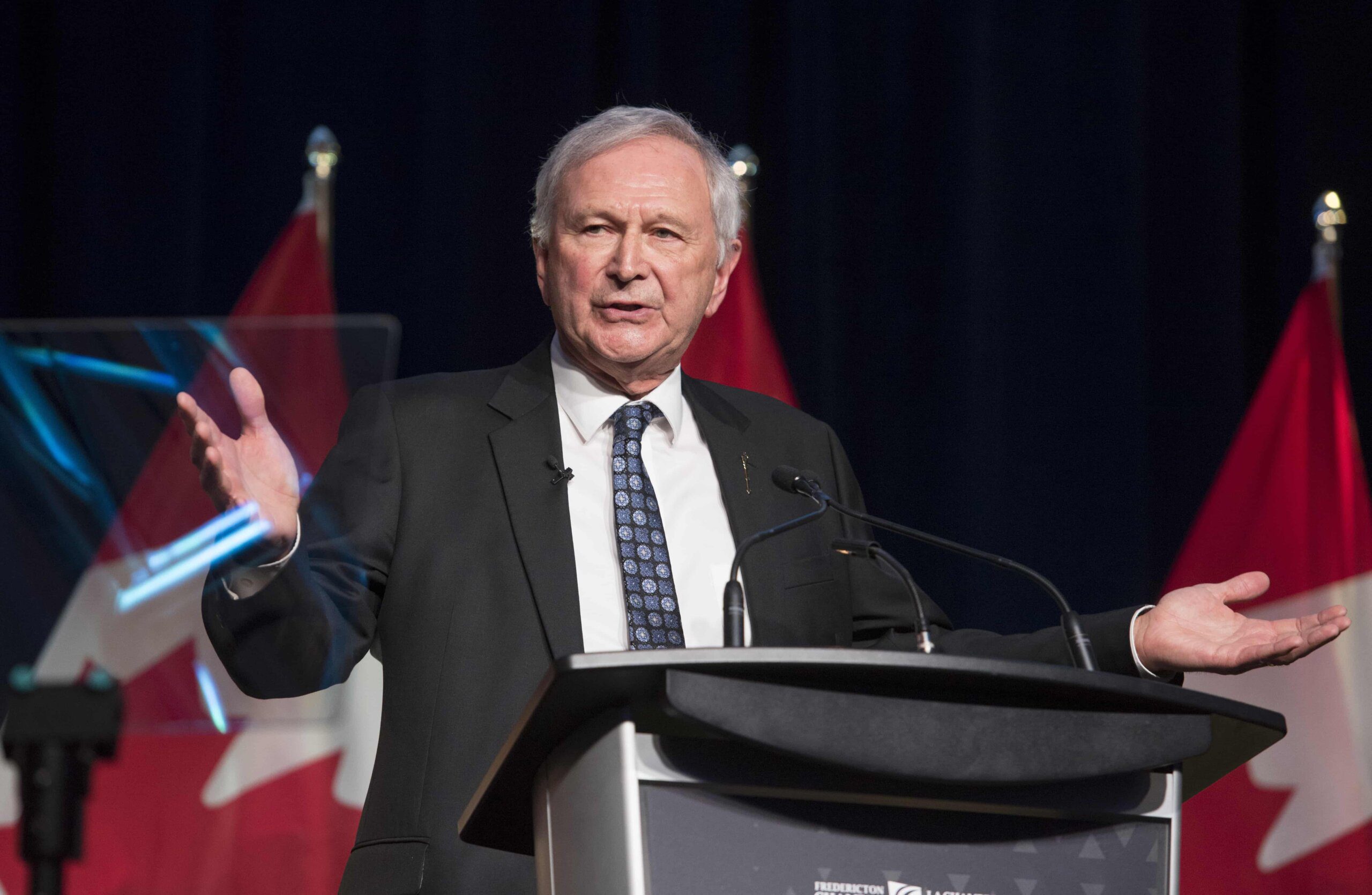

 Why you can trust Xtra
Why you can trust Xtra